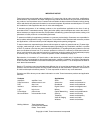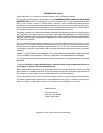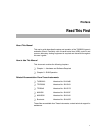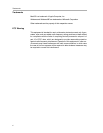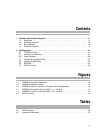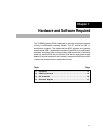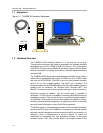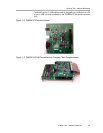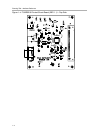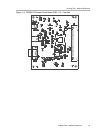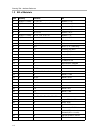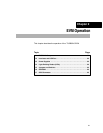
Running Title—Attribute Reference
1-2
1.1 Equipment
Figure 1−1. TUSB3210 Evaluation Equipment
USB EVM
1.2 Hardware Overview
The TUSB3210 EVM hardware platform is 11 cm wide by 13 cm long.
Throughout this document, text inside of parenthesis (ex.) denotes reference
designators found on the TUSB3210 EVM. See Figure 1−2 for a photograph
of the EVM. All jumpers are installed with the factory settings. See the jumper
table for a description of settings, and make any required adjustments before
using the EVM.
The TUSB3210 EVM design allows great evaluation flexibility and provides a
platform that is practical and easy to use. The EVM runs on a 12-MHz crystal
and uses an I
2
C EEPROM. The EVM is set up for bus-powered operation
using a 5-V to 3.3-V voltage regulator. The UART port is disabled. The
firmware installed in the EEPROM allows USB HID-class-enabled operating
systems such as Windows 98, Windows 2000, Windows ME, and
MacOS to directly access it like a keyboard, although it does not have one.
Reference firmware is installed and the source code is available to
developers. The RS-232 port is available for monitoring 8052 MCU activity for
debugging purposes. The port uses a one-to-one serial port cable instead of
a null modem. Several test points have been added to the EVM for probing.
Carefully review all setting changes prior to powering the EVM, as improper
use could result in damage to some of the EVM components.
This EVM is generic in the sense that it provides a 50-pin connector that allows
access to the GPIO pins of the TUSB3210. It is meant to be used with another
application-specific daughterboard that connects to the 50-pin connector. An
example of such a daughterboard is shown in Figure 1−3. Users are
responsible for developing their own application firmware for the target
hardware device. LED (D4) provides power and suspend status to the



